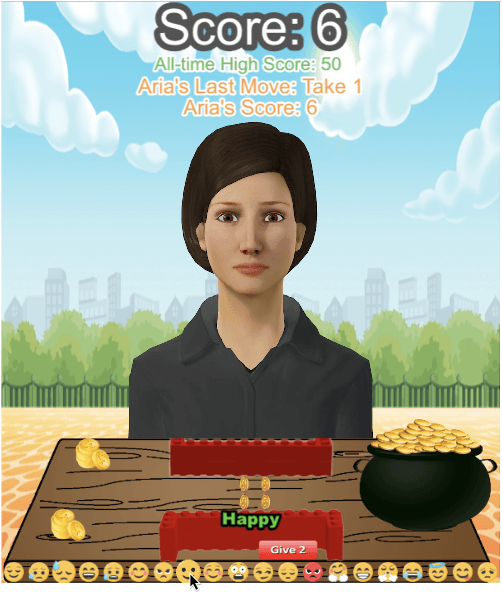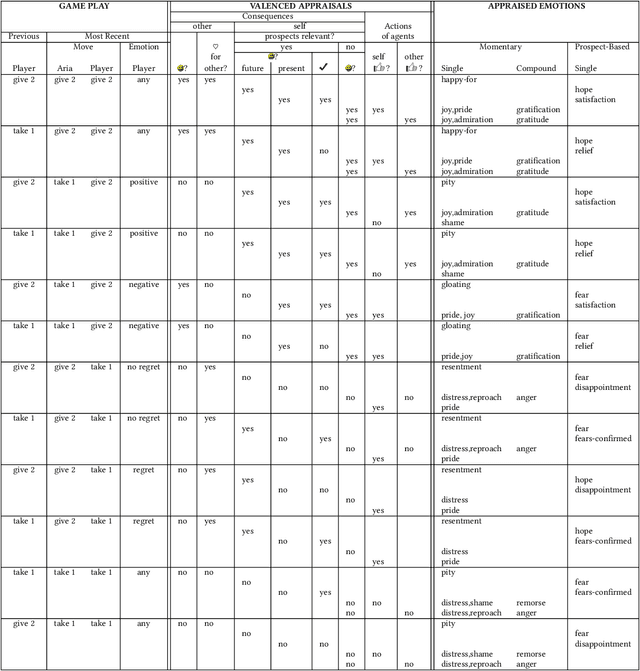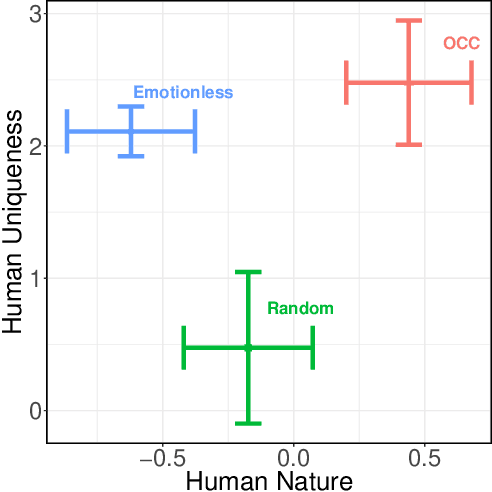Improving Humanness of Virtual Agents and Users' Cooperation through Emotions
Paper and Code
Mar 10, 2019



In this paper, we analyze the performance of an agent developed according to a well-accepted appraisal theory of human emotion with respect to how it modulates play in the context of a social dilemma. We ask if the agent will be capable of generating interactions that are considered to be more human than machine-like. We conduct an experiment with 117 participants and show how participants rate our agent on dimensions of human-uniqueness (which separates humans from animals) and human-nature (which separates humans from machines). We show that our appraisal theoretic agent is perceived to be more human-like than baseline models, by significantly improving both human-nature and human-uniqueness aspects of the intelligent agent. We also show that perception of humanness positively affects enjoyment and cooperation in the social dilemma.
 Add to Chrome
Add to Chrome Add to Firefox
Add to Firefox Add to Edge
Add to Edge